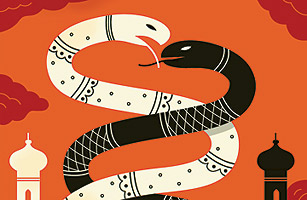
Afghanistan has been something of a forgotten war in recent months because of the world’s preoccupation with Libya and Egypt and the wave of antigovernment protests spreading throughout the Middle East. That will soon change, now that the Obama Administration is stepping up talks with the Taliban in an effort to come up with some peaceable endgame to the half-trillion-dollar war. Part of the plan is to involve nations like Saudi Arabia and the United Arab Emirates in the talks — the U.S. has recognized that there can be no lasting solution in Afghanistan without regional buy-in. But the likelihood of getting those nations’ help is slim, thanks to a new war: the cold one between Iran and Saudi Arabia. The growing tensions between Shi’ite Iran and Saudi Arabia’s Sunni regime indeed may turn out to be a threat not only to peace in Afghanistan but also to an Arab Spring. For some time now, Arab governments have been boosting their military spending in anticipation of this regional conflict. The Saudis in particular are feeling surrounded: in addition to a Shi’ite-dominated government in Baghdad, Syria is a key ally of Iran’s , as is Lebanon’s Hizballah-controlled government and Hamas in the Palestinian territories. There are also Shi’ite rebels in Yemen, which shares a long border with Saudi Arabia.
The Saudis believe that Iran has helped instigate Shi’ite protests in Yemen and Bahrain. That was one reason the Saudis, already rattled by the toppling of autocrats in Egypt and Tunisia, led a Gulf Cooperation Council military intervention in Bahrain to quell the rebellion, while accusing Iran of “violating the sovereignty” of its member states. No matter that about two-thirds of Bahrainis are Shi’ite. In the past month hundreds of protesters have been arrested. Human Rights Watch claims that at least seven have died; others may have been tortured. While the U.S. has condemned such crackdowns elsewhere, the Administration soft-shoed it in Bahrain rather than upset the folks in Riyadh who control 25% of the world’s known oil reserves and were already angry that the U.S. backed the overthrow of the region’s top Sunni, Hosni Mubarak.